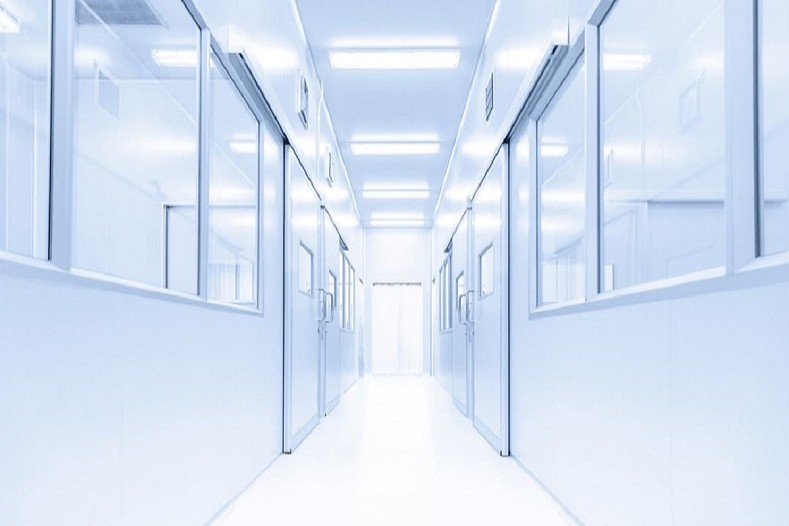Cleanrooms play a crucial role in a wide range of industries, including pharmaceuticals, biotechnology, electronics, aerospace, and healthcare. These controlled environments maintain stringent levels of cleanliness and sterility to safeguard the quality of products and the well-being of personnel. At the core of any cleanroom lies the air filtration system, which is responsible for removing particulate and microbial contaminants from the air. In this blog post, we will delve into the critical aspects of cleanroom air filtration, exploring its significance, challenges, advancements, and how MEGE Filter air filters can help ensure precision and purity within these specialized environments.
The Significance of Air Filtration in Cleanrooms
Cleanroom air filtration is the backbone of contamination control. The integrity of the products and processes within these controlled spaces largely depends on the quality of air supplied. Even the smallest particles, invisible to the naked eye, can lead to product defects or compromise the accuracy of scientific experiments. Airborne contaminants can originate from various sources, such as personnel, equipment, processes, and external environments. Effective air filtration helps maintain a consistent and controlled level of cleanliness, critical for achieving the desired outcomes in cleanroom operations.
Challenges in Cleanroom Air Filtration
1. Particle Size and Distribution: Cleanroom air filters must be capable of capturing particles of different sizes, ranging from sub-micron to larger ones. Particles of varying sizes can have different impacts on the manufacturing process, making it essential to use filters with suitable efficiency ratings to meet the required cleanliness levels.
2. Airflow Distribution: Uneven airflow distribution can lead to areas with stagnant air, causing the accumulation of particles in specific regions of the cleanroom. Properly designed air distribution systems are necessary to ensure a uniform flow of filtered air throughout the space.
3. Filter Integrity: The integrity of air filters is crucial, as any breach can lead to contamination within the cleanroom. Regular filter integrity testing and proper maintenance are imperative to guarantee reliable filtration performance.
Adherence to Filtration Standards
Cleanroom air filtration systems must comply with stringent industry standards to ensure the highest levels of precision and purity. MEGE Filter, a renowned air filtration specialist, excels in producing top-quality air filters, including AHU filters, HEPA, and ULPA filters, which adhere to international standards.
1. ISO 14644-1: Classification of Air Cleanliness
MEGE Filter air filters are designed to achieve and maintain the required cleanliness levels within cleanrooms, meeting the specifications outlined in ISO 14644-1. By using MEGE Filter air filters, cleanroom operators can confidently achieve their desired cleanroom class, be it ISO Class 1 or any other classification.
2. EN 1822: High-Efficiency Air Filters (HEPA and ULPA Filters)
MEGE Filter specializes in high-efficiency air filters, including HEPA and ULPA filters, which comply with the stringent requirements of EN 1822. These filters provide exceptional particle removal efficiency, meeting the demands of cleanrooms operating in the most critical applications.
Advancements in Cleanroom Air Filtration
1. High-Efficiency Particulate Air (HEPA) Filters: MEGE Filter's HEPA filters are engineered to remove particles as small as 0.3 microns with an efficiency of 99.97%. These filters offer outstanding protection against airborne contaminants, making them a reliable choice for cleanroom applications.
2. Ultra-Low Penetration Air (ULPA) Filters: When ultra-clean environments are essential, MEGE Filter's ULPA filters, with even higher efficiency than HEPA filters, ensure exceptional air purity and product protection.
3. Collaborative Cleanroom Design: MEGE Filter collaborates with cleanroom designers and engineers to optimize cleanroom design and airflow modeling. By using MEGE Filter air filters in conjunction with well-designed air distribution systems, cleanrooms can achieve unparalleled air cleanliness and ensure uniform air circulation.
Maintenance and Monitoring
Regular maintenance and monitoring of cleanroom air filtration systems are essential to ensure continued effectiveness. With MEGE Filter's high-quality products, cleanroom operators can benefit from prolonged filter life and consistent performance. Some best practices include:
1. Filter Replacement: MEGE Filter air filters are engineered for longevity and durability. By following the recommended filter replacement schedules, cleanroom operators can maintain optimal air quality and reduce the risk of unexpected filter failures.
2. Filter Integrity Testing: MEGE Filter air filters undergo rigorous testing to ensure their integrity and performance. Regular filter integrity testing further guarantees that the filters are functioning as intended and providing the highest level of protection against contaminants.
3. Airborne Particle Counting: Routine airborne particle counting helps monitor the cleanliness levels within the cleanroom and identifies trends or anomalies that require attention. When paired with MEGE Filter air filters, these particle counting procedures yield reliable data for continuous improvement.
Cleanroom air filtration is a foundational aspect of maintaining the highest cleanliness standards in controlled environments. By integrating MEGE Filter air filters into cleanroom air filtration systems, industries can elevate their contamination control measures and ensure precision and purity in their processes. MEGE Filter's commitment to cutting-edge filtration technology, adherence to stringent standards, and collaboration with cleanroom professionals make their air filters an ideal choice for achieving excellence in various fields. With MEGE Filter air filters, cleanroom operators can confidently rely on their filtration systems to produce high-quality products, conduct precise experiments, and safeguard the health of personnel, positioning themselves at the forefront of innovation and reliability in their industries.

